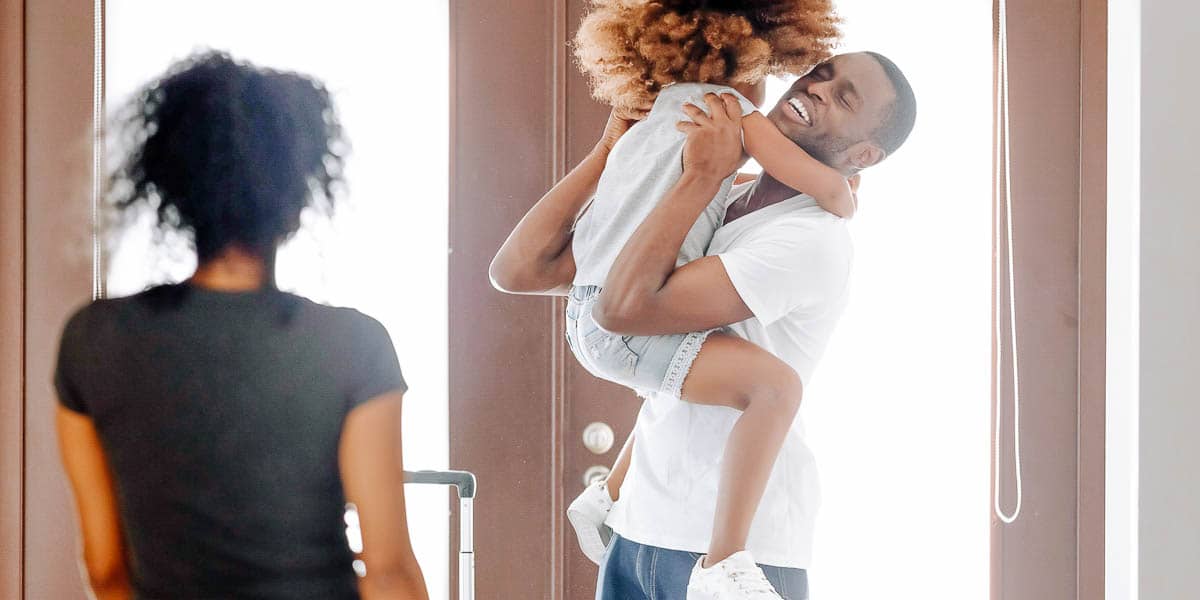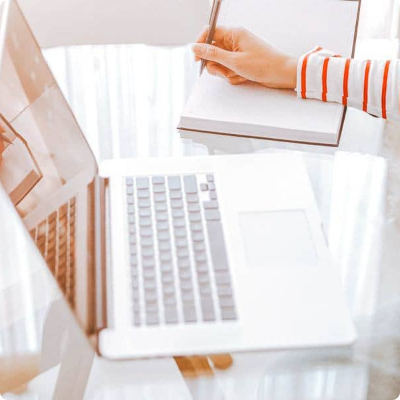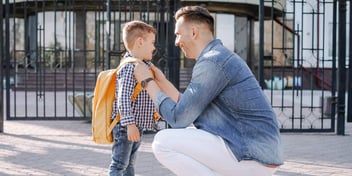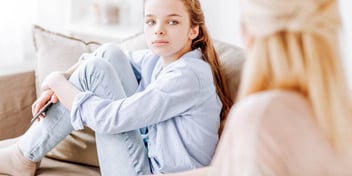Illness, Kids, and Co Parenting: How to Cope

One Friday afternoon when I was 34, I was having some follow-up testing done after a "funny" breast MRI and ended up with a breast cancer diagnosis. My 6-year-old daughter was on her way to her dad's house, my boyfriend was on his way to pick up his daughter, and I was alone and in total shock.
A cancer diagnosis is terrifying at any age, but it is extra terrifying when you are young and have a small child with separation anxiety.
During the weekend after my diagnosis, my mom drove at lightning speed from Oregon to my home in California, and I contemplated how and when I would tell my daughter that I had the big C. I prayed that she didn't remember my 32-year-old friend's memorial service just six months earlier, where no one hid the fact that breast cancer had taken her life.
My daughter was only 18 months old when her father and I separated. I could see at the time that she was struggling to understand the big change happening in all of our lives, and I couldn't find a product on the market that could help me have that conversation on her level. Because of my background in psychology and the therapist we were seeing at the time, I also realized that she needed something visual to consult so she'd understand when she'd see her dad next. I created a crude version of what is now the Custody Calendar, with magnets so my daughter could visually see her schedule. It worked wonders.
After five years of running a business based on talking to kids about hard things, I knew that I had the ability to talk my daughter through hard stuff – I just needed the tools to do it. While I waited for more details about my diagnosis and what type of treatment I would have, I searched for a book that would help me, but couldn't find one I liked. I needed something engaging and simple, and I didn't want to dance around the science, which makes things a bit less scary. I recently published a kids' book that explains the science of cancer to kids and shows them what to expect from treatment in an engaging and non-scary way so that other parents have an easier time with this awful conversation.
Once I started treatment, though, the days dragged on, and I realized our schedule had become confusing and chaotic. Some days, I felt terrible, and someone else needed to do school drop-offs and pickups. Other days, I felt okay enough to be engaging. Pretty much every day was so emotionally exhausting that I couldn't think of ways to connect with my daughter, who deserved my attention.
I won't lie: This was the hardest time in my entire life. I remember crying to my mom, "I just don't want this to be harder than the divorce," while realizing that it already was. (You can read more about my cancer journey on my blog ). But, we can't control the cards we're dealt. We can control how we respond to it and the message we send to our kids.
I've adopted this mantra: Live your truth. Don't hide from the hard stuff, because it'll come whether you try to avoid it or not.
And I learned a few things along my journey through divorce and cancer that might be helpful to you, too, especially if you have kids.
Don't keep your ex in the dark about what's going on
They could turn out to be a truly valuable source of help – and even comfort.
I was really nervous to share the news of my cancer diagnosis with my ex. I was concerned that he might throw a custody curveball at me and I'd find myself fighting for custody again instead of focusing on my health. However, for the most part, he was incredibly accommodating, and being divorced ended up being a blessing.
During my surgeries, my daughter went to her dad's house, and I knew she was excited to play with her new baby brother, which helped alleviate my guilt. My ex was really flexible, which was very helpful and helped me trust him a bit more. We switched weekends when I had chemo, so on my worst days I didn't have to worry about her seeing me at my lowest, nor did I need to worry about keeping her entertained.
Come clean (to a point) with your kids
I explained my diagnosis and treatment process to my six-year-old and included her throughout my year of healing. I didn't share every single detail, but I did share enough to let her know to expect changes in my body, in my mood, and in the level of energy she was used to. I didn't tell her everything right away. When I first shared the news, I let her know that I would be having surgery – but not the extent of it or that I would be having multiple surgeries. It was enough to let her know that a big change would be coming, and she was not scared.
As my treatment progressed, I let her know what I knew she needed to know in order to process the way she would see me change physically and emotionally. It wasn't easy for either of us, but I don't regret not keeping her in the dark for one minute.
Unfortunately, I think my daughter thinks that cancer is much more common than it actually is (my mom is also a two-time breast cancer survivor). But at some point, I hope she will look back and realize how strong my cancer journey made me and know that she can face hard things herself.
Let others help you
People will offer to help. Let them.
You won't process your illness the same way I processed mine. One of the biggest lessons of this experience for me is that we should never, ever judge another person or the way they handle a diagnosis like cancer. No two types of cancer are the same, no two people are the same, and no two people handle their diagnosis the same way. No one is stronger or braver than anyone else.
People showed up for me in ways I never would have expected. Friends who snuck food into my refrigerator and arranged get-togethers so I didn't get depressed. Friends who left a bag of unicorn-themed things on my doorstep, brought scarves for my head, an incredibly expensive wig, and lemon treats because they heard I'd lose my taste buds. Friends who said truly thoughtful and caring things to me, online and in-person, to lift me up.
And it feels crazy to say this, but you can find blessings anywhere – even in cancer.
I was no fun at all during treatment, and my daughter's second-grade year was pretty rotten. But, my mom and my boyfriend basically moved in with us for five months, which gave my daughter other people to trust. I am grateful for that, and for how much stronger our relationships are after sharing a two-bedroom apartment for almost six months.
It helped me to accept the help and kindness of others. I hope you'll give yourself the permission to accept help when it's offered, in whatever crazy, unexpected, and wonderful way it appears.




